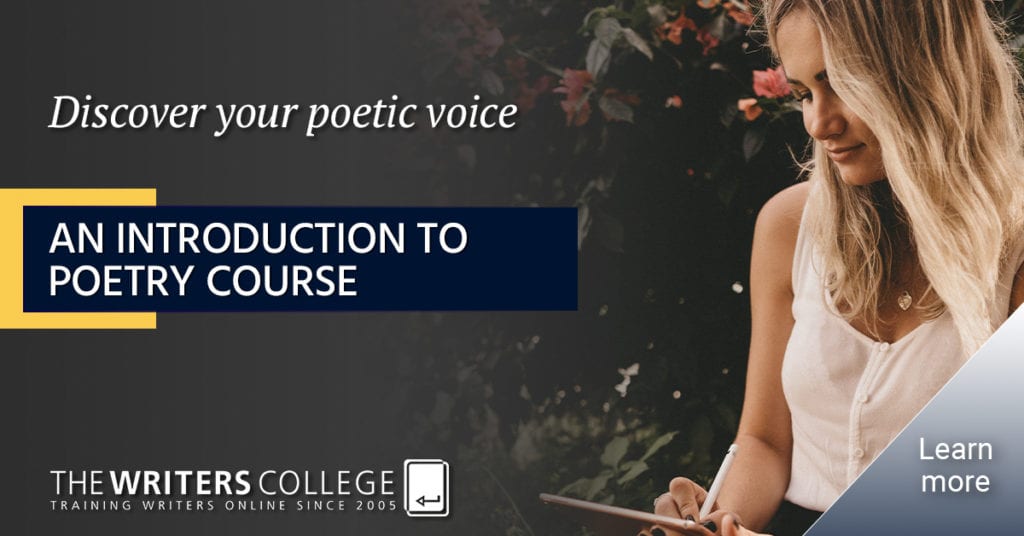– BY FIONA ZERBST
There are no short cuts in poetry. Even if you have been writing for over 20 years, you start at the very beginning when you sit down to a blank sheet of paper.
In fact, if you have written good poems in the past, there is no guarantee you will write good poems in the future. You cannot predict that you will write a great poem, even if you have mastered some poetic forms and you feel reasonably confident that you know how to use language effectively. There is just no way of knowing.
I say all this, not to discourage you, the would-be poet. I say it to encourage you. Because what it means is that experienced poets have only a very slim advantage over poets who are just starting out. That advantage is having written more – perhaps well, or even not so well, but certainly more – than the new poet.
“… Experienced poets have only a very slim advantage over poets who are just starting out.”
The key to writing good poetry is to be sure you are writing what you truly feel. Not what is expected of you, or what you think is appropriate. You cannot be cautious or fearful when you write, because you will most likely censor yourself. If you want to write poetry, you must want to say something very badly, and want to learn how to say it well.
This paragraph by Aldous Huxley expresses the ‘mission’ of the poet very nicely:
“The poet is, etymologically, the maker. Like all makers, he requires a stock of raw materials – in his case, experience. Now experience is not a matter of having actually swum the Hellespont, or danced with the dervishes, or slept in a doss-house. It is a matter of sensibility and intuition, of seeing and hearing the significant things, of paying attention at the right moments, of understanding and co-ordinating. Experience is not what happens to a man; it is what a man does with what happens to him. It is a gift for dealing with the accidents of existence, not the accidents themselves. By a happy dispensation of nature, the poet generally possesses the gift of experience in conjunction with that of expression.”
Doing more doesn’t make you a better poet
As Huxley says, you don’t have to do more to become a good poet – climb Everest or swim to Robben Island or whatever the case may be. Those things might be worth writing about, but they won’t turn you into a good poet because you’ve done them. In fact, the great English poet Philip Larkin had what many would consider a ‘boring’ life, working as a librarian for much of his life, never marrying, not doing anything especially flamboyant or wild. Yet his poems are a testament to a lifetime of vibrant thoughts and observations.
Poetry is interpreting the world around you
Essentially, you need to take what you live through every day and interpret it on the page: be it heartbreak, a new hairstyle, or something you’ve read about that’s touched you. Even a photograph that evokes an emotion in you can lead to a good poem.
Sitting down at your desk, pen in hand, doesn’t predicate success (though it must be said that just finding the time to do that much already makes you something of an achiever!). But showing up every day (or every week, if that’s what you can manage) and starting from the beginning is how poetry happens.
In that regard, the beginner and the poet with three or four volumes to his or her name are in the same position: fraught, full of passion, unsure that what needs to be said can, in fact, be said in words.
Poetry is ‘a gift for dealing with the accidents of existence’, and we can only deal with them by facing them head-on, head down, writing. In that sense, every poet is an ‘eternal beginner’, with no prior experience necessary. It is when you start polishing those poems that experience helps – but the initial act of writing puts us all (so to speak) on the same page.
About the Author
Fiona Zerbst is the author of four poetry collections to date: Oleander (Modjaji Books, 2009), Time and Again (UCT Younger Poets Series No 1/Snailpress, 2002), the small zone (Snailpress, 1995) and Parting Shots (Carrefour Press, 1991). She received an MA in Creative Writing from UCT, studying under the late Stephen Watson.
Fiona tutors the Introduction to Poetry Course at The Writers College.














